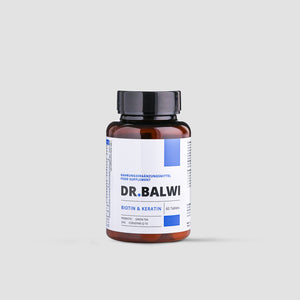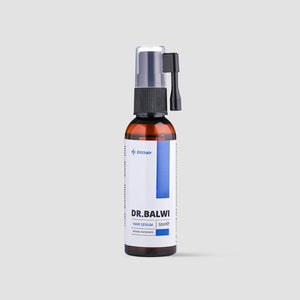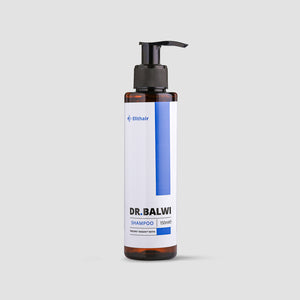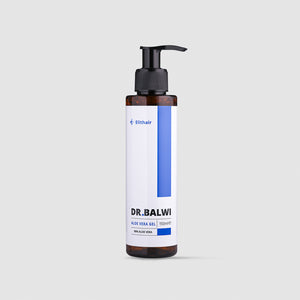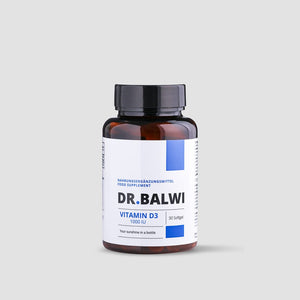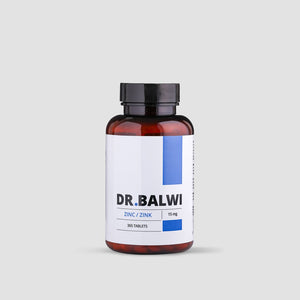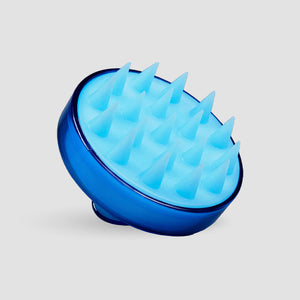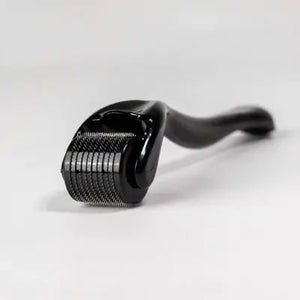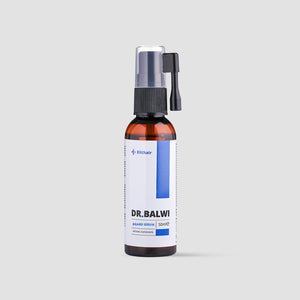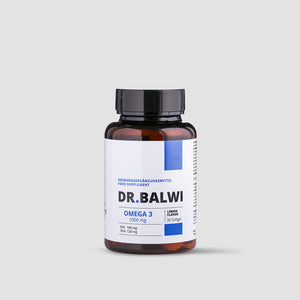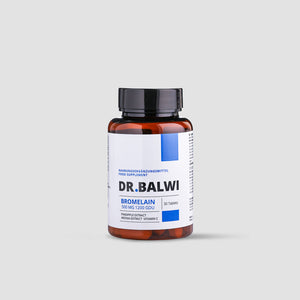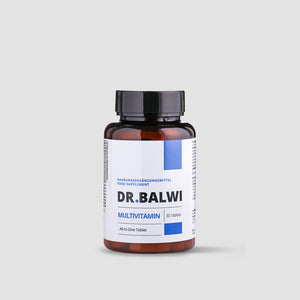
Can hair loss be caused by clogged pores?
Table of contents
- How does hair loss occur due to clogged pores?
- Who is affected by the problem?
- What helps against this?
- Is this type of hair loss permanent?
- What to do?
- Conclusion: Clogged pores can cause hair loss
How does hair loss occur due to clogged pores?

When the pores on your scalp are clogged, the oxygen and nutrient supply to your hair roots is cut off. This can literally "suffocate" the roots, leading to hair loss.
This can have a significant impact on hair health, leading to damage or even complete hair loss. Healthy growth can no longer occur in these areas.
Who is affected by the problem?
This often affects people with very oily hair . It is caused by excessive sebum production. This, in turn, leads to dandruff forming on the scalp and clogging pores.
The causes for this are varied. Excessive sebum production can be triggered by a hormonal imbalance, for example. However, genetic predisposition, increased stress, or enormous mechanical strain on the scalp can also cause increased sebum production.
Additionally, the problem can arise if you regularly use excessive amounts of hairspray or hair gel. Hairspray is particularly dangerous because it inevitably comes into contact not only with your hair but also with your scalp. Overuse of these products over time can clog your pores, which can lead to hair loss.
Especially if you don't rinse out the styling product thoroughly, residues will remain on the scalp, preventing it from breathing properly.
What helps against this?

To counteract hair loss caused by clogged pores, you must first determine the cause of your scalp's clogs. The best way to do this is to consult a qualified doctor.
If the problem was caused by excessive use of styling products such as hair gel or hairspray, it is important that you stop using these products completely immediately.
If the problem is caused by a hormonal imbalance, a doctor can help you restore balance. If it's a hereditary predisposition, you can follow some care tips to reduce hair oiliness. For example, there are special shampoos and care products that help reduce excess sebum.
Also, always make sure that you rinse out all care products thoroughly so that no residue remains.
Is this type of hair loss permanent?

There's no general answer to this question. Whether hair loss caused by clogged scalp pores is permanent depends on whether the hair roots have been damaged. If these roots have already completely died because they were deprived of nutrients and oxygen for too long, new hair growth can never occur in the affected areas.
The bald patches will then remain permanently. However, if the root isn't irreversibly damaged, it can recover and new hair growth can occur after some time.
What to do if the problem cannot be stopped?
If your hair roots are irreversibly damaged by clogged pores, there is still a way to make new hair grow in the affected areas.
Transplanting your own hair is the only truly effective and permanent solution. Dr. Balwi and his team at Elithairtransplant always use the proven and innovative FUE method for hair implantation.
First, healthy hair follicles are removed from a donor area. The procedure is performed under local anesthesia, making it virtually painless. After the selected hair follicles, also known as grafts, are prepared in a special nutrient solution, they are ready for transplantation.
The FUE method enables particularly precise and accurate graft transplantation. Only tiny openings are required to implant the follicular units into the scalp. These openings heal quickly and virtually scar-free.
After just a few months, new, strong hair growth will begin in the previously bald areas of your head. You can enjoy the final results approximately one year after the hair transplant.
Conclusion: Clogged pores can cause hair loss
If the scalp's health is compromised, hair can no longer grow properly. Hair loss due to clogged pores can be a huge burden for those affected. The problem is caused by excessive sebum production. This blockage leads to the hair roots no longer receiving sufficient nutrients and oxygen.
A genetic predisposition, mechanical overload, or a hormonal imbalance can trigger this condition. As long as the hair roots aren't irreversibly damaged, hair loss isn't permanent and can recover.
However, if the roots have already died because they have been deprived of oxygen and nutrients for too long, the bald patches will remain permanently. In this case, hair implantation can help you finally regain full, strong hair. During hair transplantation, healthy hair follicles are implanted into the area of the scalp affected by hair loss.
After just a few months, new and healthy hair growth will appear in these areas. The FUE method used by Dr. Balwi allows for particularly aesthetic and natural results.

